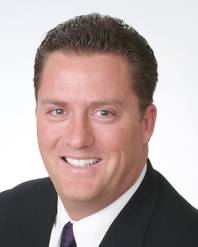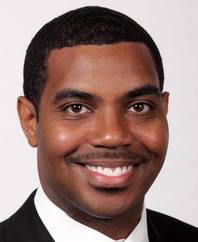Wednesday, June 1, 2011 | 2 a.m.

John Oceguera

Steven Horsford
Sun coverage
Sun archives
- More construction defect suits filed (4-9-2009)
- Trapped by lawsuits, subcontractors seek relief (2-22-2009)
- Homeowners allege construction defects in lawsuits (2-20-2009)
- Court rules on construction defect lawsuit (9-29-2008)
CARSON CITY — As a freshman in the minority party, Assemblyman Ira Hansen, R-Sparks, wasn’t invited to Monday’s late night budget negotiations between legislative leaders and the governor.
But that didn’t prevent him from pacing outside Gov. Brian Sandoval’s office in the dark, fretting over whether his construction defect bill was going to survive the budget tug-of-war between Republicans and Democrats.
In a surprise twist less than a week before the end of the legislative session, that tug-of-war has breathed new life into what had appeared to be a dead debate on Nevada’s construction defect laws — a debate that now threatens to dismantle a tenuous deal on the budget.
“I just want to make sure it all goes well,” Hansen said as he made another pass in front of the Capitol while Sandoval met inside with Senate Majority Leader Steven Horsford, D-North Las Vegas, and Assembly Speaker John Oceguera, D-Las Vegas.
Hansen’s pacing didn’t pay off.
When Oceguera and Horsford returned to the Legislature, they quickly passed bills on collective bargaining and education reforms demanded by Republicans, leaving construction defect legislation to languish in the purgatory of nearly complete budget negotiations.
The long-festering fight among homeowners, trial lawyers and homebuilders has never been a priority for Sandoval, who has focused on education reforms and helped win concessions on collective bargaining from the Democrats.
But stopping there didn’t fly with Assembly Republicans.
And it certainly didn’t fly with Hansen, a plumbing contractor who has lived what he describes the nightmare of repeated lawsuits, many of which had not a thing to do with his company’s work but rather with that of other project contractors.
And it didn’t fly with Assemblyman Cresent Hardy, R-Mesquite, who owns three struggling construction companies that do road and other infrastructure work on residential subdivisions.
Indeed, shortly after midnight, Hardy made his own trip to the governor’s office to not only plead the case for construction defect reform, but to deliver the news that the Assembly Republicans would not back down on the issue.
If the Republicans, egged on by Hardy and Hansen, act as a bloc on construction defects, they have enough votes to scuttle whatever budget deal is worked out between Sandoval and legislative leaders.
“This is an economic issue,” Hardy said Tuesday afternoon shortly before meeting with Oceguera, who has remained one of the Republicans’ most steadfast opponents on changing the construction defect law. “This is about jobs. If we don’t get this changed, builders aren’t going to build anymore.”
The battle over Nevada’s construction defect law, which contractors argue favors trial lawyers to the detriment of homeowners and the construction industry, has played out over the past several sessions.
In 2009, contractors nearly succeeded in changing the law, after working for months in the Democratic-controlled Senate. Their legislation, which would have ended the practice of guaranteeing reasonable attorney fees for homeowners who either prevail in a lawsuit or win a settlement to avoid trial, died in the Assembly.
But this session, the fight has failed to gain traction.
Hansen, who said he has been involved in at least three recent construction defect lawsuits, introduced legislation that would allow a court to award reasonable fees according to the traditional rules that govern such decisions in other types of lawsuits.
Because the legislation was more focused, didn’t seek to change the definition of a defect or make other changes sought by the construction industry in prior sessions, Hansen reasoned he had a shot at getting it through.
But the Assembly Judiciary Committee never took action on the bill when it was heard April 11 and it died without being brought up a second time.
Instead, the Assembly moved forward on a bill sponsored by Oceguera, that attempts to change the way attorney fees are awarded, the way a defect is defined and shortens the period in which a lawsuit can be filed. That bill, which hasn’t had a hearing since April, has sat in the Ways and Means Committee, often a final resting place for failed legislation.
“It has been on the table since the very beginning of the session,” Oceguera said. “They want to eliminate the law altogether. That’s not compromise.”
Indeed, frustrated that Democrats wouldn’t agree to their language on attorney fees, Hardy shot back: “Fine, eliminate the entire chapter.”
Hansen, wary of disrupting a deal that could include passing his bill, refused to comment Tuesday.
But the budget impasse brought by the Assembly Republicans’ insistence that Democrats deal on construction defect reform forced into action a previously latent cadre of lobbyists who had been quietly working the issue without much hope of success.
Some admitted surprise that construction defects had emerged as the tipping-point issue on the budget.
“If it weren’t for the dogged attempt of the Assembly Republicans, we wouldn’t be here,” one lobbyist said. “We’ve worked for so many years on this and never got anything done. Now we have these (legislators) with an understanding of this that we never had before. They’ve lived this and now they’re willing to go to the wall on that issue.”
CORRECTION: This story had incorrectly reported that Assemblyman Ira Hansen's construction defect bill did not receive a hearing. Assembly Bill 285 was heard in the Assembly Judiciary Committee on April 11. The committee, however, never took action on the bill and it died without being brought up a second time. | (June 1, 2011)

Join the Discussion:
Check this out for a full explanation of our conversion to the LiveFyre commenting system and instructions on how to sign up for an account.
Full comments policy